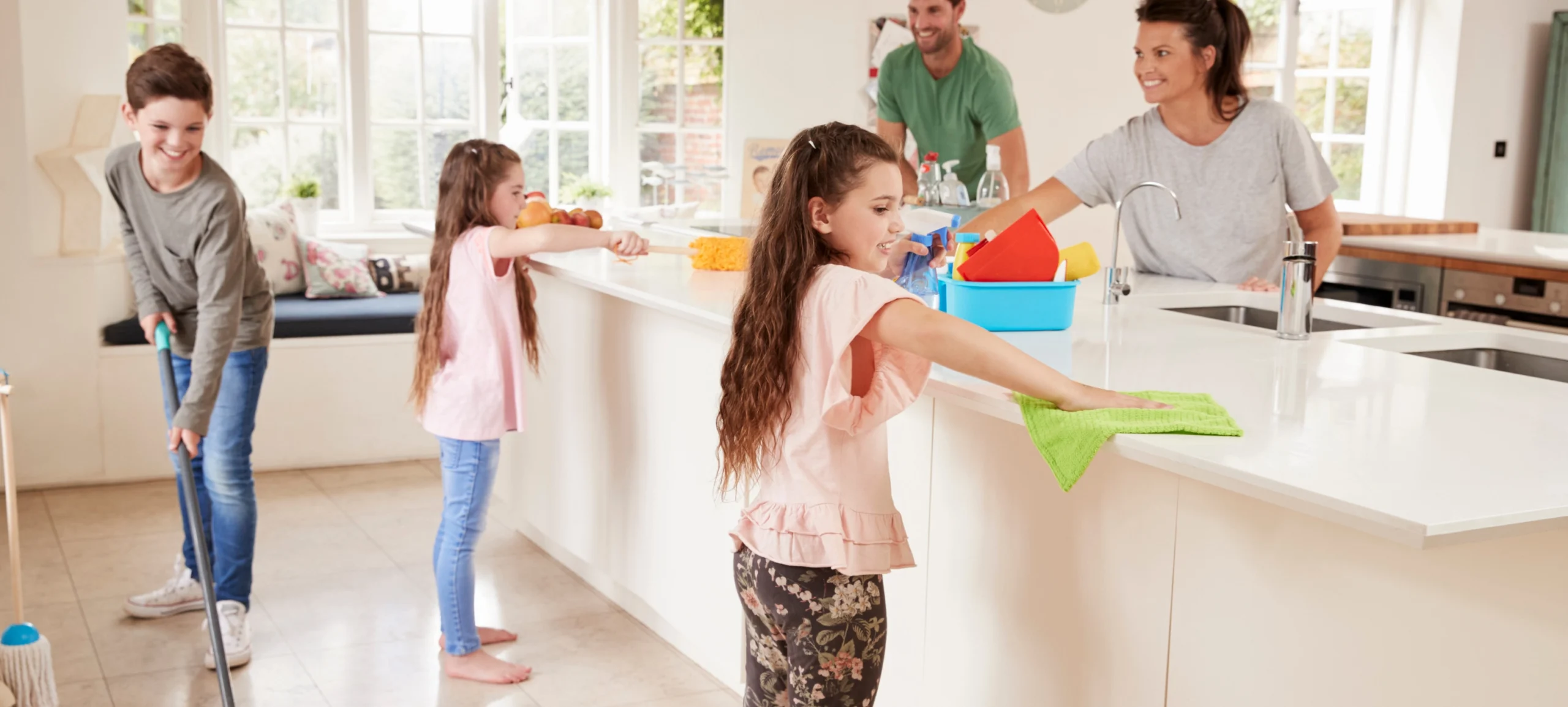Teaching children responsibility is one of the most valuable life lessons you can impart. One effective way to do this is by giving them age-appropriate chores. Not only do these tasks help children develop a strong work ethic, but they also encourage independence, boost self-esteem, and contribute to the overall functioning of the family. As children grow, their ability to handle more complex tasks increases, making it important for parents to match chores with the child’s developmental stage. Here’s a guide to age-appropriate chores that can help teach responsibility at each stage of your child’s development.
Toddlers (Ages 2-3)
At this age, toddlers are beginning to understand basic concepts like “helping” and “cleaning up.” They may not be able to complete tasks perfectly, but involving them in household activities fosters a sense of contribution and accomplishment. The goal at this stage is to focus on simple tasks that don’t require too much fine motor control.
Suggested Chores:
- Put toys away: Toddlers can start putting away their toys after playtime. You can make it a fun game by singing songs or turning it into a race.
- Wipe up spills: Toddlers can help wipe up small messes with a damp cloth or sponge.
- Place dirty clothes in the hamper: Encouraging toddlers to drop their clothes into a laundry basket helps them learn about tidying up.
- Feed pets: If you have a pet, toddlers can help scoop food into a bowl, with supervision.
Benefits: Toddlers learn the basic concept of tidying up after themselves, and they get a sense of achievement by completing simple tasks.
Preschoolers (Ages 4-5)
Preschoolers are becoming more independent and capable of handling more specific chores. They have better motor skills, so they can manage tasks that require a bit more effort and precision. At this stage, the focus is on tasks that promote self-care and contribute to the household in small but meaningful ways.
Suggested Chores:
- Set the table: Preschoolers can place plates, utensils, and cups on the table. You can make it easier by setting up designated spots for each item.
- Water plants: Teach your child how to water houseplants or garden plants. Make sure they use a child-sized watering can.
- Make the bed: Help them learn how to pull up the sheets and arrange their pillows. It may not be perfect, but it’s a good start!
- Sort laundry: They can help match socks or sort clothes by colours before you do the laundry.
- Put away clean dishes: Preschoolers can begin placing plastic cups, bowls, and utensils in the cabinet.
Benefits: Preschoolers start to gain confidence in their abilities and understand the concept of helping others. It also teaches them the importance of routines and responsibility.
Elementary School (Ages 6-9)
By this age, children have developed the skills to handle more detailed chores and can take on bigger responsibilities. Their attention spans are longer, and they are capable of completing tasks with less supervision. It’s important to start giving them more responsibility while also teaching them how to organise and manage their time.
Suggested Chores:
- Make their own bed: They can make their bed independently, including arranging pillows and blankets.
- Put away their own clothes: They can fold clothes and put them in drawers or hang them up.
- Take out the trash: With a small bag or a smaller bin, children can help take the trash to the designated outdoor bins.
- Vacuum or sweep small areas: Elementary-aged children can use a small, lightweight vacuum or broom to clean up spills or small areas of the house.
- Empty the dishwasher: They can take clean dishes from the dishwasher and place them in the proper cabinets.
Benefits: Children at this age begin to understand the relationship between their actions and the well-being of the household. They learn to be more self-sufficient and develop an understanding of time management.
Tweens (Ages 10-12)
By the time children reach the tween years, they are capable of handling more complex and time-consuming chores. They are becoming more mature, responsible, and able to contribute in more substantial ways to the family routine. The focus should be on reinforcing responsibility, independence, and teamwork.
Suggested Chores:
- Clean their own room: They should be able to dust, vacuum, and organise their room regularly.
- Help with meal prep: Tweens can start learning how to chop vegetables, set the stove, and follow simple recipes with supervision.
- Clean the bathroom: They can clean countertops, mirrors, and even toilets with supervision.
- Take out recycling and trash: They can be responsible for sorting recycling and taking out both recycling and regular trash.
- Laundry: They can start washing, drying, folding, and putting away their laundry with minimal assistance.
Benefits: Tweens develop a strong sense of independence and accountability. They also begin to understand the importance of teamwork within the family unit and learn the skills needed for taking care of themselves and others.
Teens (Ages 13+)
Teenagers are now fully capable of managing most household chores independently and may even take on more advanced responsibilities. By this stage, the goal is to teach them about time management, budgeting, and working as part of a team.
Suggested Chores:
- Prepare entire meals: Teenagers can cook full meals, either alone or with minimal supervision, depending on their cooking skills.
- Mow the lawn or do yard work: Many teens are capable of handling outdoor chores such as mowing the lawn, trimming hedges, and raking leaves.
- Deep cleaning tasks: Teens can be responsible for cleaning the entire house, including tasks like washing windows, deep-cleaning bathrooms, or organising the garage.
- Manage their own schedules: Help your teen learn how to balance chores with schoolwork, extracurricular activities, and social time.
- Care for younger siblings: Depending on maturity, teens can help care for younger siblings, including supervising playtime or assisting with schoolwork.
Benefits: Teens learn valuable life skills like cooking, cleaning, and managing time. These chores prepare them for adulthood and teach them the importance of contributing to the well-being of others.
Conclusion
Assigning age-appropriate chores is one of the best ways to teach children responsibility, teamwork, and life skills. By giving them manageable tasks that suit their abilities and gradually increasing the complexity as they grow, you help them build confidence and a strong sense of accomplishment. Start early, be consistent, and remember to praise their efforts. These small tasks lay the foundation for responsible and capable adults, ready to take on the challenges of the world!
We understand that there are many aspects that encompass a Mother, Father or Child and strive toward providing resources and services that accommodates this.
Our content is aimed to inform and educate families on issues starting from pregnancy through to the challenges of the teen-age years.
- Say Hello to the Ultimate Holiday Brunch Bite - December 17, 2025
- Tiny Toons Looniversity Returns: Meet the Voice Behind Plucky and Hamton! - December 12, 2025
- From Pain to Possibility: Panado®’s New Marketing Campaign, Highlights The Joy Of Pain Relief - December 10, 2025






1 thought on “Age-Appropriate Chores to Teach Responsibility”
This is absolutely interesting !! Thank you so much for this amazing article!